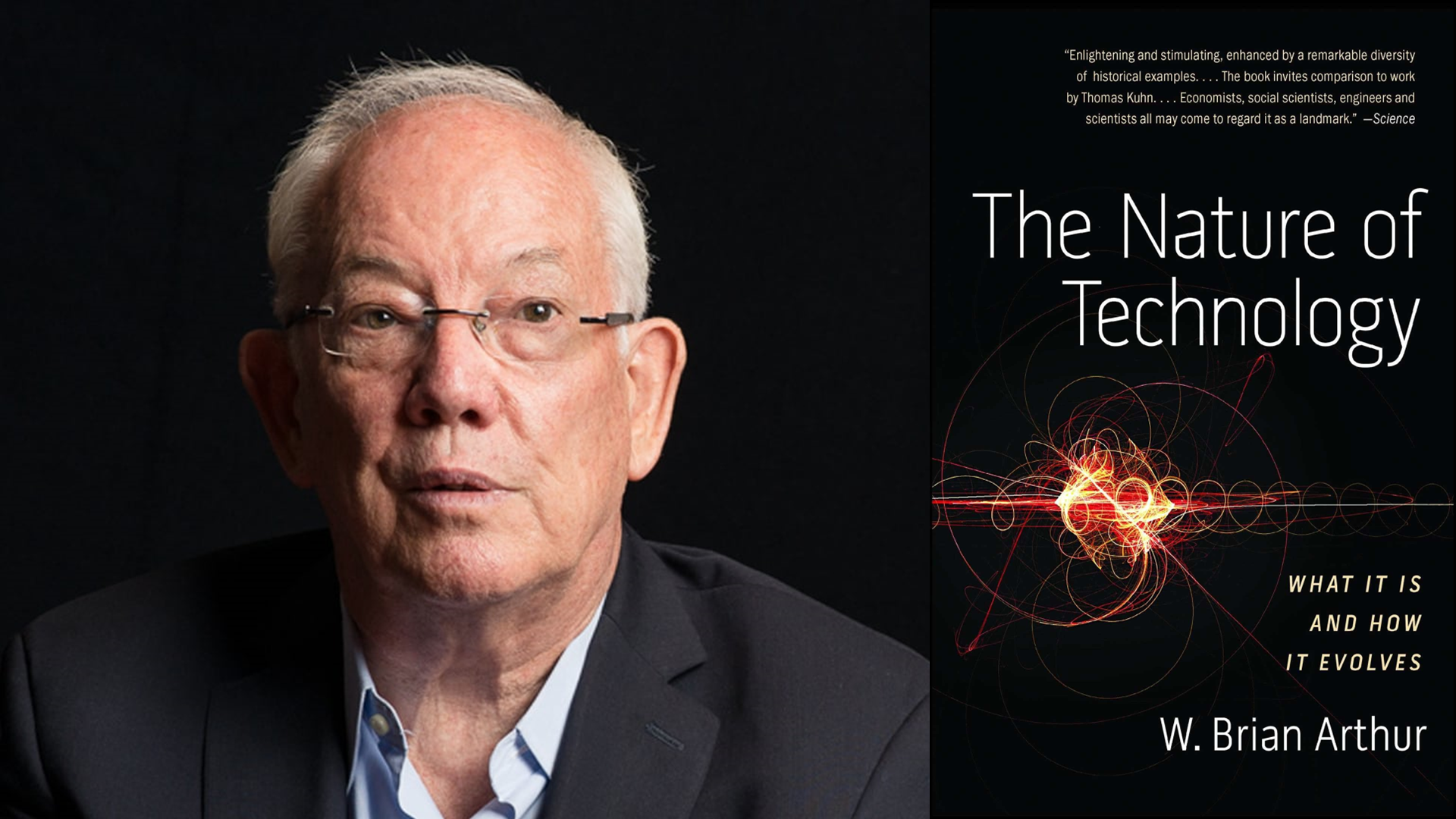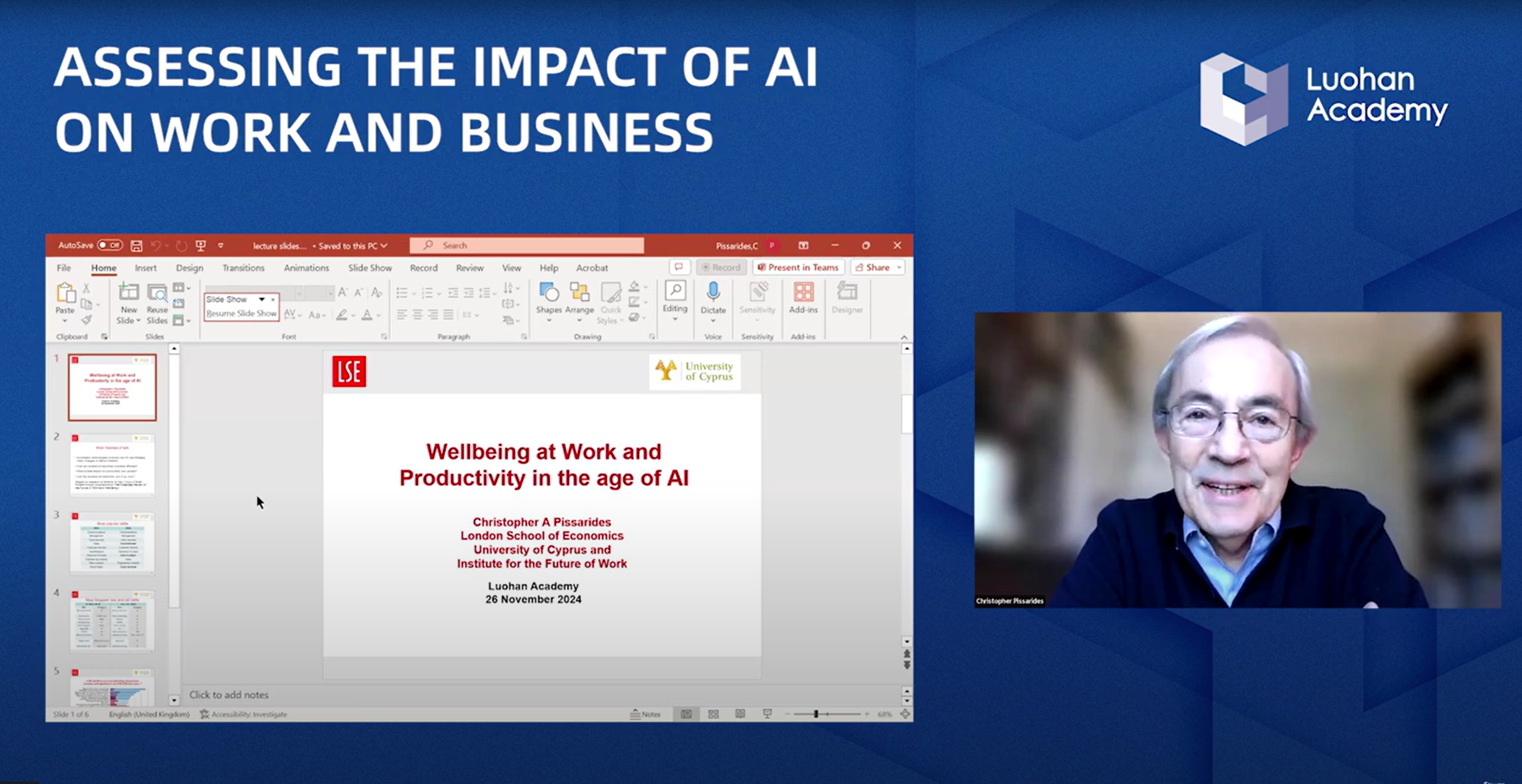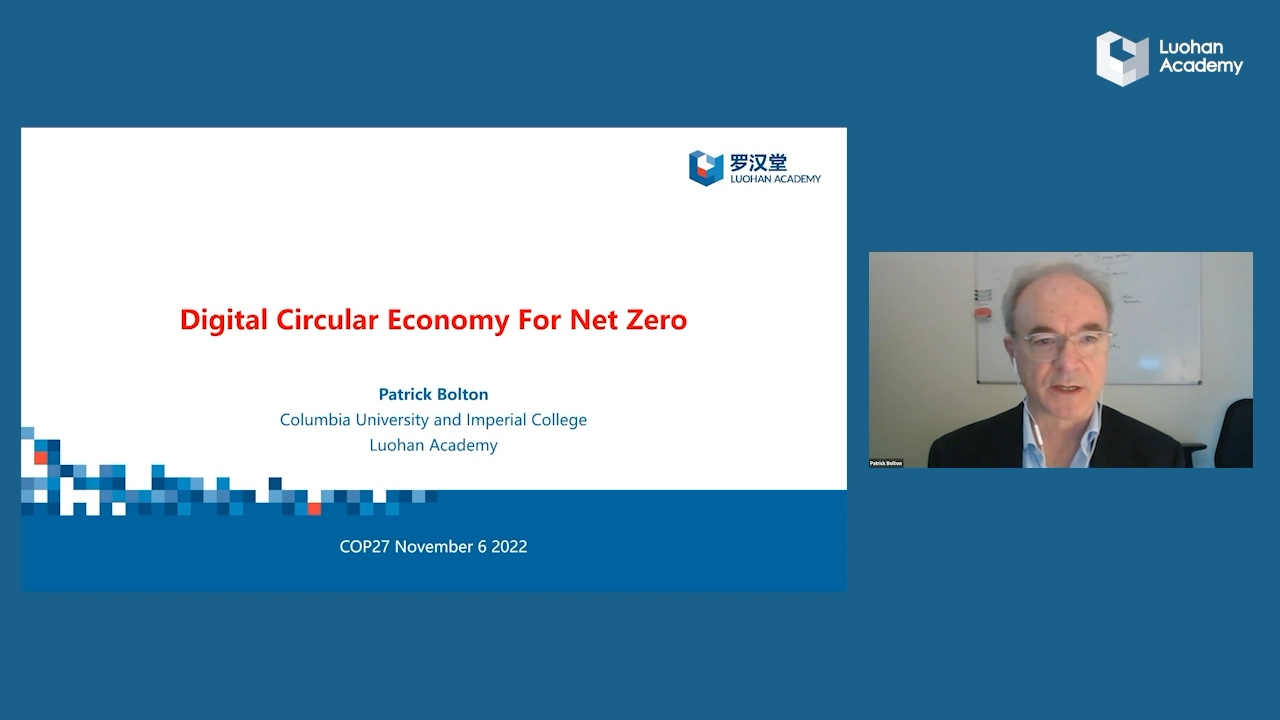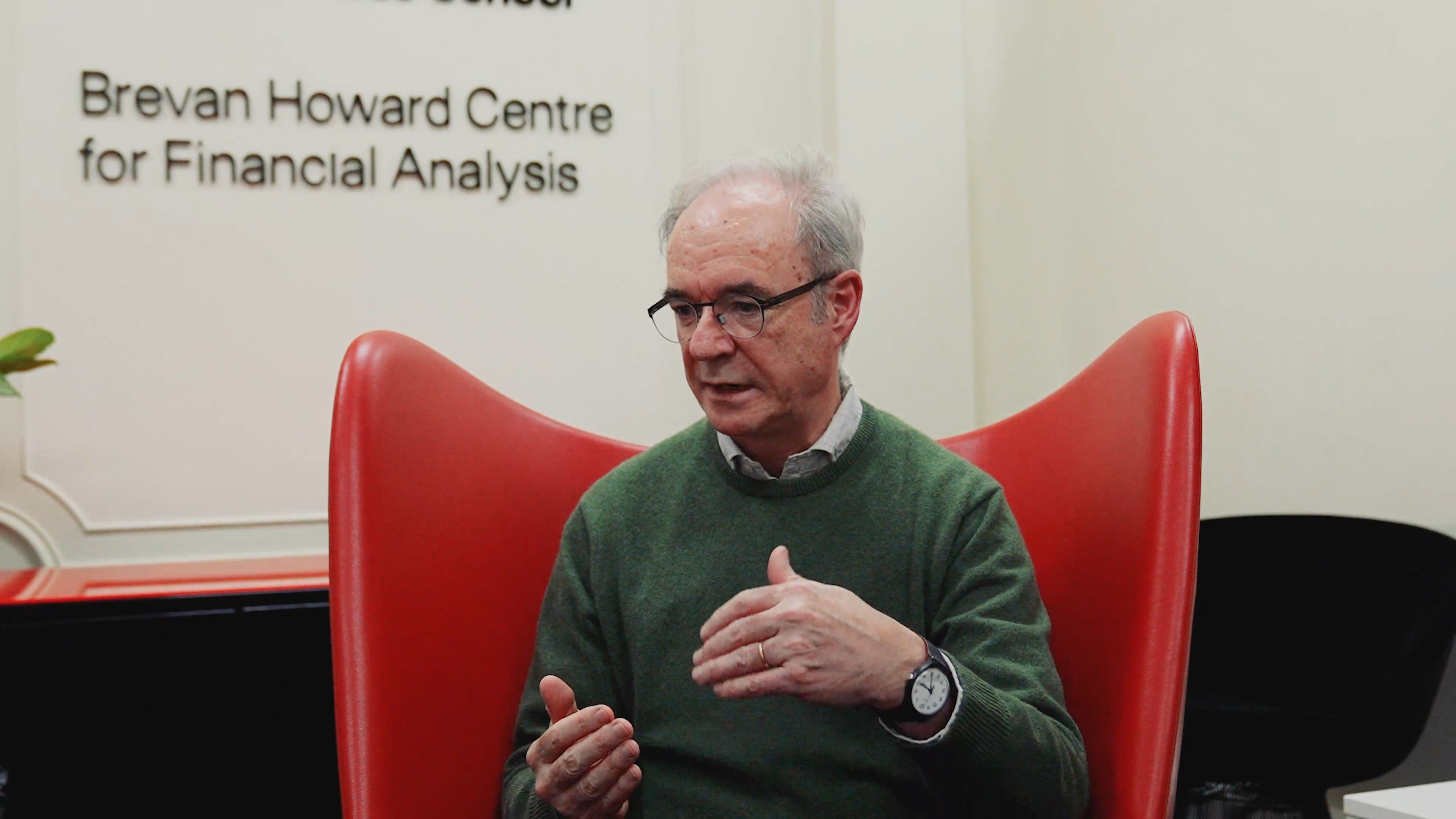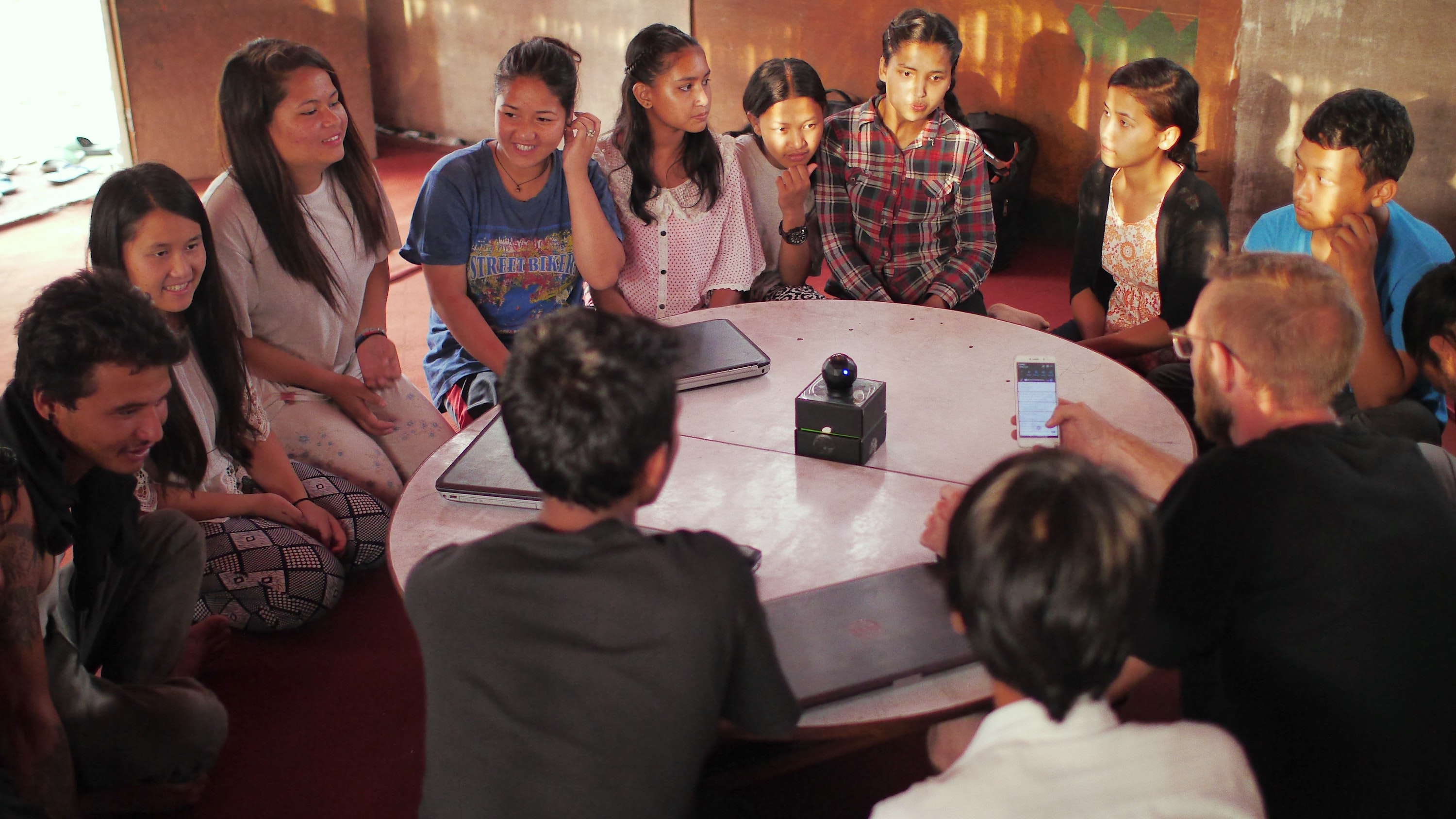Eric Maskin is the Adams University Professor and Professor of Economics and Mathematics at Harvard. He has made contributions to game theory, contract theory, social choice theory, political economy, and other areas of economics. In 2007, he was awarded the Nobel Memorial Prize in Economics for laying the foundations of mechanism design theory.
Professor Maskin gave impressive presentations on the auction theories, and he also made his viewpoints on what the tech companies could do to help revise the auction.
Transcript
Well, thank you very much, Steve, and many thanks to Long and to the Academy for a valuable report, and also for organizing this conference today. I don't have to tell you that any central issue, perhaps the central issue in economics, is how to get the right allocation of resources. And one reason why this is a non-trivial problem is that the data needed to determine the right allocation is not always in the public domain. Data are dispersed over various agents, and each of those agents has his or her own objectives.
Eric Maskin:
Now I've been fascinated by mechanism design for many years. One major task of mechanism design is how to get the right allocation despite this dispersion of information.
One issue that arises is that even very common mechanisms can run into serious privacy issues. And to make this point, let me concentrate on a simple example which is probably familiar to many of you. Let's imagine that there's a government that has a radio spectrum license, and it wants to allocate this license to one of several telecom companies who are interested in the license. And let's imagine that the goal of the government is to get an efficient allocation. It wants to award the license to the company that values it the most, because this is likely to create the most value for society.
Now, the government doesn't know company's values, so it has to proceed indirectly. And the most obvious thing for the government to do is to hold an auction for the license where each company makes a bid, the high bidder wins the license and the winner pays its bid. Now, the problem with this mechanism is that if winners are paying their bids, every company is going to underbid. They'll bid less than their valuation because if they actually bid their valuation, they'll end up with a zero profit, even if they win. So they'll all be under-bidding. And that means that there's no guarantee that the company who really has the highest valuation will win. Now, that brings us to a beautifully simple and ingenious solution that Vickrey came up with 60 years ago. And that's a second price auction in which each company makes a bid, the high bidder wins, but now the winner pays the second highest bid.
Now companies have no incentive to underbid or overbid because they're not paying their bid anyway, and furthermore, if they underbid, they risk losing the license all together. If it's worth a hundred million to me and I bid 80 million and you at 90 million, I will have lost, even though I would have won and made a nice $10 million profit if I had bid what it was really worth to me. So I don't want to underbid. And similarly, I don't want to overbid because then I risk overpayment. Every company will bid exactly its valuation. And that means that the high valuation company wins and, so in some sense, the problem is solved. But the problem with this second price auction, the Vickrey auction, is that companies may not want to make their valuations public. After all, the other companies in the auction are their competitors and they may well not want to give these competitors, these rivals valuable data about themselves.
One way around this might be to have companies make sealed bids. So only the government sees the bids and then the government informs the high bidder that it has won and it has to pay the second highest bid. But particularly in a second price auction, this is going to give the government perverse incentives. The companies are going to have to rely on the government to be honest and in a second price auction, the government may well want to tell the winner that the second price was actually a good deal higher than it actually was. That will improve the government's revenue.
So recently there have been technological advances, and this is related to some of what Tom was saying, which offer a way out. Blockchain and cryptography offer a solution that preserves privacies. The idea is to continue to use the second price auction, but have the bidders post their bids in an encrypted way on a public website, and then arrange the decryption keys so that bidders can indeed check whether or not they were the winner. If they were the winner with the second highest price, no names are attached to any of this data. Even the winner learns only one other bid, namely the second highest bid and not what all of the other bids were. I think this technology has a great future in these sorts of mechanisms. We will be seeing such technological mechanisms increasingly used. In my view, that's a great step forward.
For more information, please visit Luohan Academy's youtube channel: Luohan Academy
